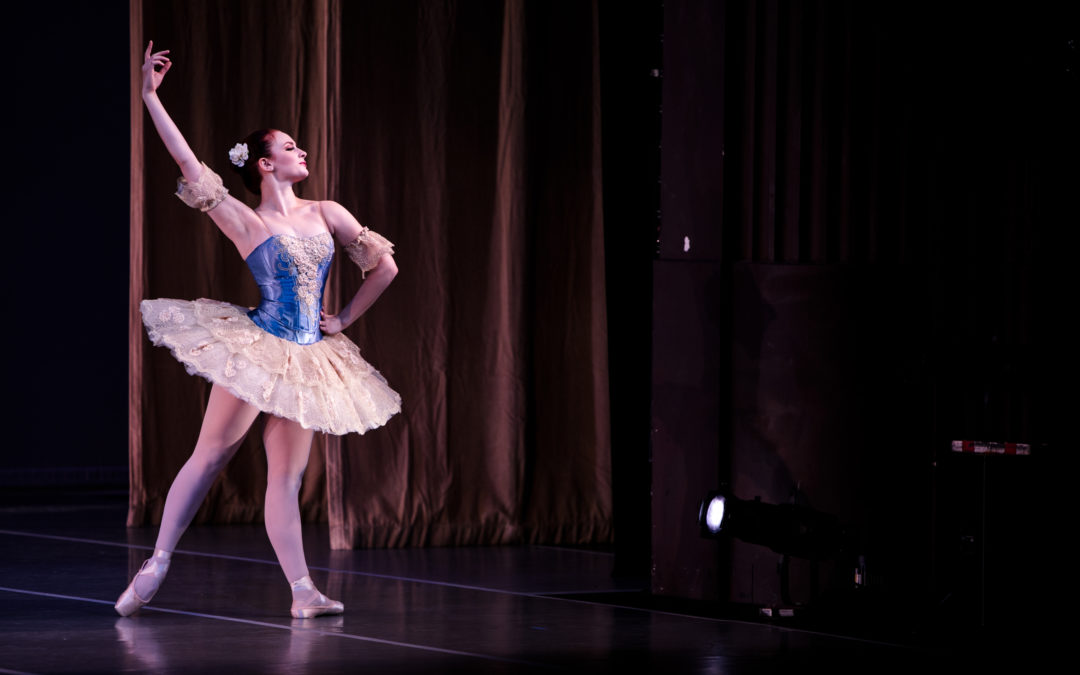The story of an almost-lost ballet
Paquita is a romantic ballet in three acts, with its original story written by Joseph Mazilier and Paul Foucher, music composed by Edouard Deldevez, and choreography by Joseph Mazilier. Marius Petipa first staged it for the Imperial Ballet in St. Petersburg in 1847. In 1881, Petipa created a revival of this ballet, adding new pieces composed by Ludwig Minkus. This production included the Paquita pas de trois for the first act and the Paquita grand pas classique and the Mazurka des enfants for the last act.
These additions survived long after the full-length ballet left the stage (although the full version was just recently revived by several ballet companies). Today, these pieces, particularly the Grand pas classique, are major cornerstones of the traditional classical ballet repertory and have been staged by ballet companies throughout the world.
The full ballet’s plot hints at the distant Imperial times, with the hierarchy of dancers’ entering the stage and the storyline featuring gypsies, smugglers, a bottle of poison, a hiding place in the fireplace, a kidnapped noblewoman, a cherished locket, Spanish cloaks, daggers, weddings, and diamonds.
Paquita’s story takes place in Spain during the occupation by Napoleon’s army. The heroine is the young Romani girl, Paquita. She doesn’t know that she is really of noble birth, having been abducted by Romani people when she was an infant. She saves the life of a young French officer, Lucien d’Hervilly, the target of a Spanish governor who plots to have him killed by Iñigo, a Roma chief. With the help of a medallion with her father’s portrait, she discovers her true history and ends up marrying Lucien (who is actually her cousin).
Grand Pas Classique, a series of masterful variations, was originally performed as part of the wedding celebrations in the last act. But as the Grand Pas Classique took a life of its own outside of the original full-length ballet, its name became capitalized.
Today, Grand Pas is a showcase of classical dancing, featuring a diverse variety of classical ballet’s most challenging steps in six distinct technical variations, in addition to the original Petipa’s Pas de trois.
Olympic Ballet Theatre’s Summer Performance gives you a chance to immerse yourself in the world of classical ballet set in a distant past. Join OBT on June 3 at Edmonds Center for the Arts to see Paquita Grand Pas Classique and a vibrant world premiere of a contemporary ballet by Alberto Gaspar. Get tickets at https://www.olympicballet.org/performance-season/summer-performance/ .

